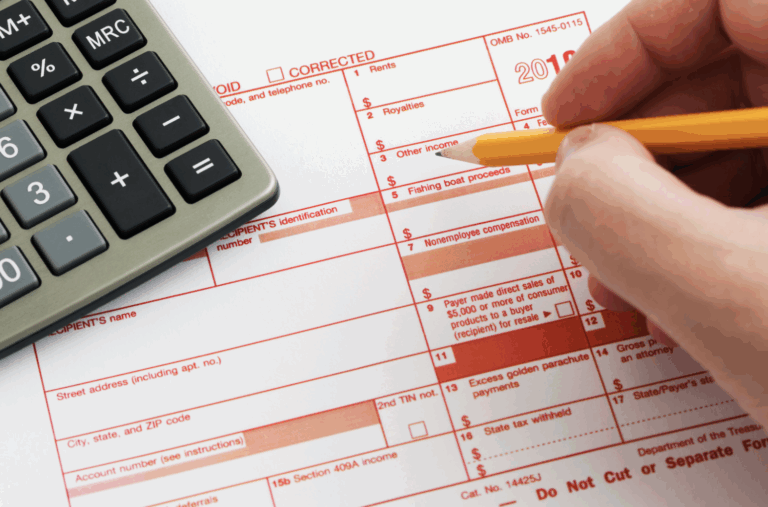Dealing with phone calls and mailings from debt collection agencies can be a stressful and frustrating experience. But once they file a lawsuit, you may fear the potential repercussions. If you’re wondering how to win a debt collection lawsuit against you, here are six steps you can take.
1. Respond to the Lawsuit
One of the biggest mistakes you can make in this situation is to ignore the lawsuit entirely. If you ignore it, it’ll go away, right? Unfortunately, that’s not the case.
When a collection agency files a lawsuit, the court summons will provide a date by which you need to respond. If you don’t respond, the court may issue a default judgment. This gives the collection agency what it wants, including wage garnishment, access to funds in your bank account, freezing your bank account, or placing liens on your assets.
Here’s how to respond to a court summons for credit card debt, as well as other types of debt:
- Avoid waiting until the last minute in case of delays.
- File your response with a legal brief called an Answer with the court clerk.
- Do not admit liability. You want to force the collection agency to prove that you owe the debt.
- Request a stamped copy of your Answer from the court.
- Send the copy via certified mail to the collection agency.
You’ll typically have between 20 and 30 days to respond to a court summons, but check the paperwork to get the actual date. Remember, if you don’t respond, you can’t win a debt collection lawsuit against you.
2. Challenge the Collection Agency’s Right to Sue You
Collection agencies typically buy debt from creditors, such as credit card companies, that have given up on trying to collect. They buy these debts for a fraction of the total balance and then try to collect the full amount of the debt from you.
However, the debt buyer must prove that they have the right to collect the debt and sue you over it, so request documentation showing the original credit agreement with your signature and the paper trail from the original creditor to the collection agency.
Remember, the burden of proof is on the plaintiff, so if the agency can’t provide validation that they have the right to sue you and the amount you owe, they’ll have a tough time moving forward.
Additionally, you may have an out if the debt is so old that it’s past the statute of limitations in your state. The time period can vary from state to state, but it’s generally between four and six years. If the last time you were active exceeds this time limit, the debt is time-barred, and the collection agency isn’t allowed to sue you for it.
Keep in mind, too, that if you make even a small payment to the collection agency, that restarts the clock on the statute of limitations. So avoid doing this at all costs.
3. Hire an Attorney
You can defend yourself in a lawsuit from a collection agency. But an attorney can make a huge difference in winning a credit card lawsuit or a court proceeding on any other type of debt.
Debt attorneys are experienced working with collection agencies and understand the ins and outs of the court system. They can even help you figure out if a collection agency has acted illegally, at which point you can make a claim against the agency.
If you’re not sure about hiring an attorney because of the cost, many provide a free consultation, where you can get an idea of how to proceed. In that consultation, an attorney can help you identify which paths you can pursue and get an idea of the benefits of defending yourself versus the cost of hiring an attorney.
If anything, an attorney can help you by providing an objective perspective on the situation. After all, if your back is against the wall in a lawsuit, it can be difficult to think objectively.
4. File a Countersuit
If you or an attorney has found that the collection agency breached the Fair Debt Collection Practices Act (FDCPA), you may be able to get your attorney fees covered in addition to compensation from the agency.
Of course, the burden will be placed on you to prove your allegation, so consider this option only if you have evidence and an attorney.
5. Attempt to Settle the Debt
Although it’s common for a debt collector to sue consumers to collect on consumer debt, it can be costly. In the right circumstance, you may be able to offer an alternative: settle out of court.
Debt settlement involves paying less than what you owe. From the debt collector’s perspective, it may be worth losing some of the balance to avoid the cost and time required for a lawsuit.
If you’re considering pursuing this route, you can go it alone, but it may be better to hire an attorney to help with the negotiation.
The settlement can come in the form of a lump-sum payment or regular monthly payments, depending on the situation and what the two parties agree to. If it’s a lump-sum payment, you may need to save up over time to make that happen.
Keep in mind, though, that settlement doesn’t always work. And if you can successfully defend yourself without settling, you may be better off proceeding with the lawsuit.
6. File for Bankruptcy
If your financial situation is dire enough that you simply can’t pay the debt, either all at once or over time, consider filing bankruptcy.
Once you file, you’ll be granted an automatic stay, which means the collection agency can’t attempt to collect while the bankruptcy is ongoing.
Depending on the type of bankruptcy you choose, you may have the debt wiped out completely or put on an affordable payment plan. Before considering bankruptcy as an option, consult with an attorney who can help you determine the proper course of action.
Also, it’s important to understand how bankruptcy can impact you in the long term. While it can provide immediate relief, you may be required to sell some of your assets to pay what you can. Also, a bankruptcy can stay on your credit report for up to 10 years, making it more challenging to qualify for credit in the future when you need it.
In other words, bankruptcy can be an option but proceed with caution.
The Bottom Line
Dealing with debt collectors is never ideal, and having a lawsuit on your hands can be extremely daunting. The good news is that you have rights as a consumer and don’t have to just accept what the debt collector wants.
Understanding how to win a debt collection lawsuit can give you the defense you need.
Also, it’s important to at least do a free consultation with a law firm before you respond to a lawsuit. It can make a huge difference in your efforts to protect yourself and your assets.
Contact Tayne Law Group to get a free consultation for your situation. We have decades of experience dealing with the debt collection industry, and we can help you protect your rights, identify ways to defend yourself successfully, and help you decide which path is the right one for you.





